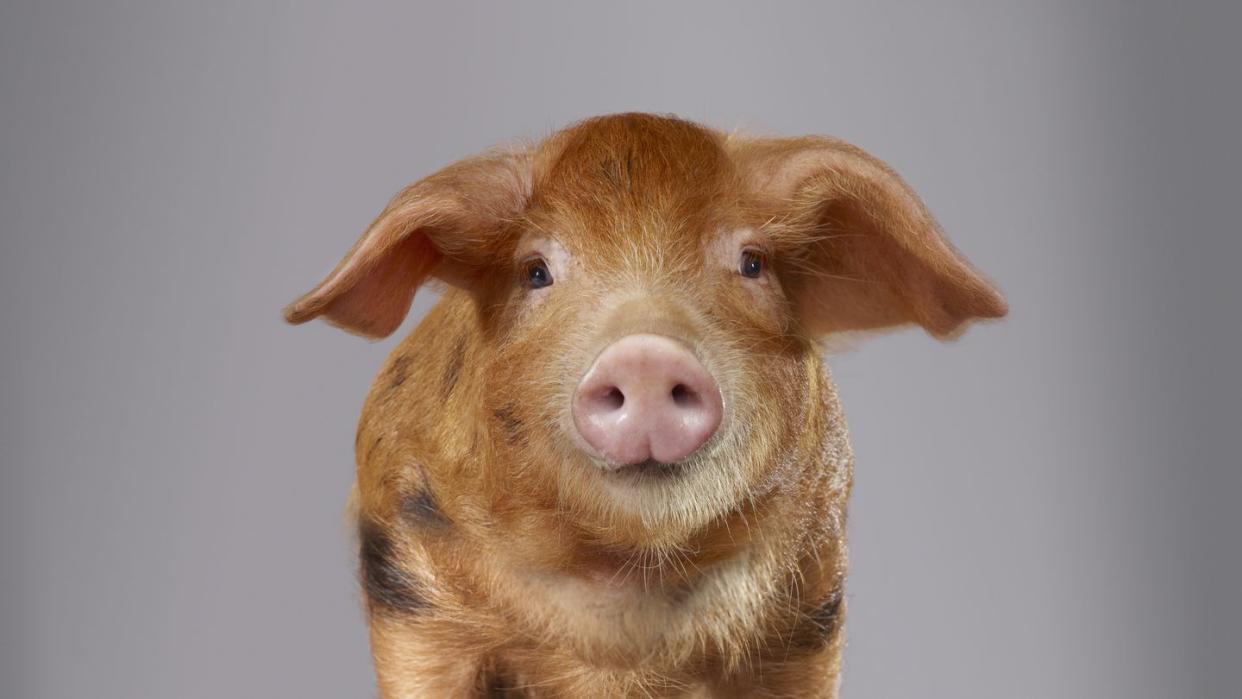The World’s Bacon Is Under Threat. A Newly Created Superpig Is Here to Save It.

"Hearst Magazines and Yahoo may earn commission or revenue on some items through these links."
The U.K.-based company Genus created a gene-edited pig that’s resistant to a devastating virus that causes porcine reproductive and respiratory syndrome, or PRRS.
The FDA could be close to giving the altered animal its stamp of approval, making the PRRS-proof pig the first genetically-modified animal available for wide human consumption.
Commercializing the science conducted by the University of Missouri in 2015, Genus’ technique deleted a receptor known as CD163 that allows the virus to establish an infection.
For nearly half-a-century, the debate surrounding genetically modified organisms (GMOs) has been mostly contained in the realm of fruits and vegetables: bacteria-resistant bananas, insect-proof corn, and herbicide-hardened sugar beets. Now, the conversation is shifting to another section of the nutrition pyramid—meat.
A U.K.-based company called Genus has genetically modified pigs to be resistant to a nasty virus that causes porcine reproductive and respiratory syndrome, or PRRS, which costs the pork industry $2.7 billion annually (and isn’t so great for the pigs themselves, either). The company says it hopes that the U.S. Food and Drug Administration (FDA) will approve the animal for wide human consumption, making the PRRS-resistant swine the first genetically modified animal to attain such an approval.
Vaccines against the virus do exist, but they don’t offer 100 percent protection. In 2015, however, scientists from the University of Missouri discovered that disabling a certain receptor—the one that the virus uses to create the infection—essentially stops PRRS dead in its tracks.
“Once inside the pigs, PRRS needs some help to spread; it gets that help from a protein called CD163,” University of Missouri’s Randall Prather said back in 2015. “We were able to breed a litter of pigs that do not produce this protein, and as a result, the virus doesn’t spread. When we exposed the pigs to PRRS, they did not get sick and continued to gain weight normally.” After this discovery, the university signed a global licensing deal for any future commercialization of the gene-editing method—and now that time has finally arrived.
The road to getting that approval is a long and winding one. According to Science, the FDA “views the DNA change made by the genome editor CRISPR as an ‘investigational new drug,’” which requires multiple submissions to discern the edited gene’s safety, inheritability, and stability over generations. Of course, these submissions also need to establish full protections against the virus.
The FDA has approved two other genetically modified animals, a faster-growing salmon and an allergy-safe swine, but both these animals only cater to specialized markets. Genus’ CD163-disabled pigs would be the first genetically modified animal to be consumed on a wide scale.
Although not quite the climate disaster that is raising cows for slaughter, rearing pigs for pork still contributes mightily to greenhouse emissions, particularly through the managing mountains of manure produced by swine every day. While gene-edited pigs improves the lives of these animals by eliminating the virus that infects sucklings, as well as easing the mental burden of farmers, decreasing our appetite for pork products still remains the best way to have a healthier planet —for humans and pigs alike.
But in the meantime, at least the pigs can be a little healthier.
You Might Also Like
